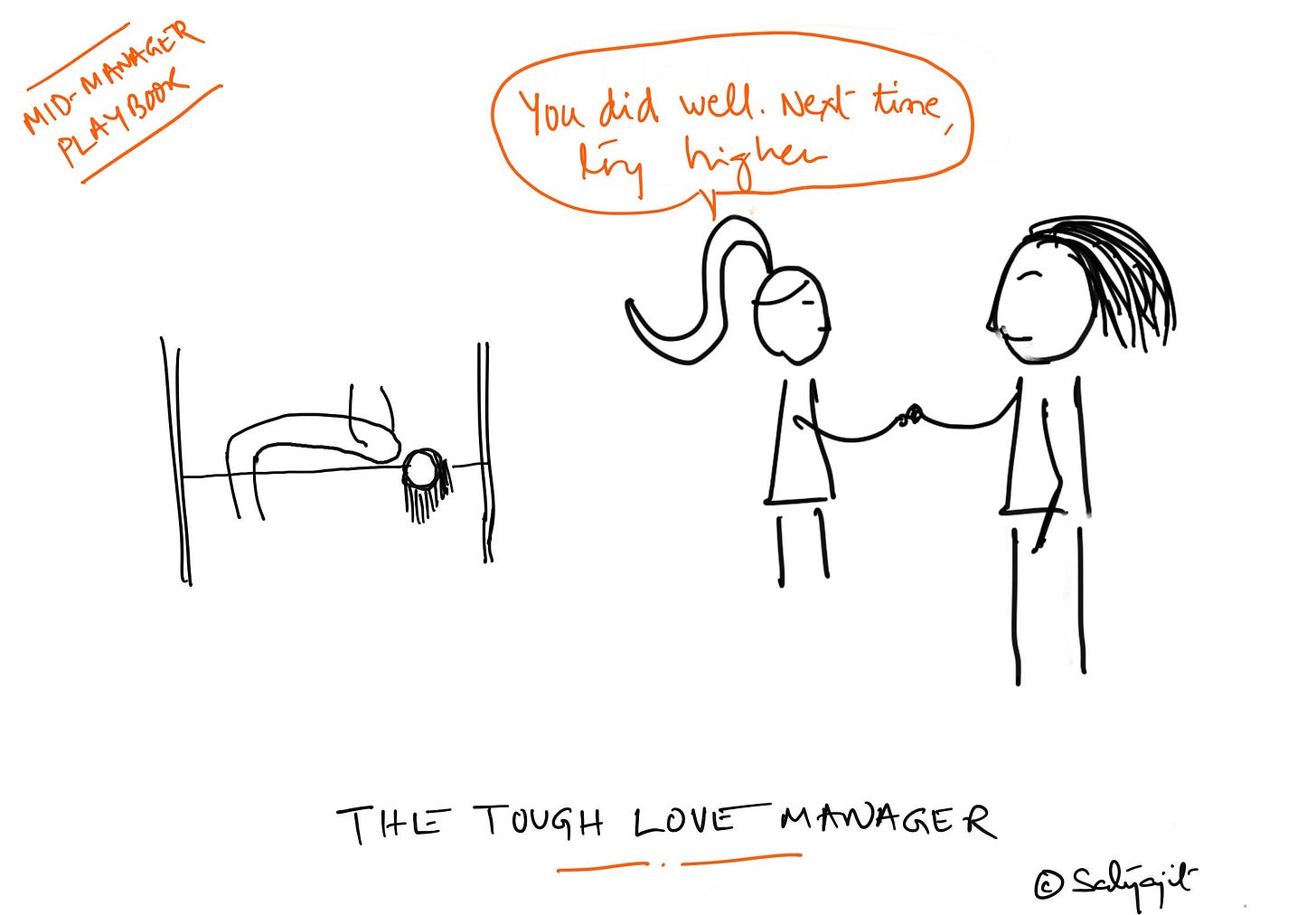Hi, curious readers! In this new year, I've put together a playbook for middle managers 📖
It has 14 relatable managerial situations (cases) across common themes. Each case outlines an actionable approach to deal with the described situation.
Who is it for?
While the described scenarios are taken from real situations from those in middle management, understand that the boundaries between managerial layers can sometimes be blurred. So, if you’re unsure about whether you’re too experienced or inexperienced to be a middle manager, dive in with an open mind and see for yourself. If you find value, it is for you.
While it is available on Gumroad, I'm excited to share it here first for you all.
Here’s a case from the playbook that captures a common yet tricky challenge faced by many who lead teams 👇
Give harsh feedback constructively - The Tough Love Manager
Scenario
An engineer in Yamini’s group makes a blunder on a matter she’s familiar with. He then sends an email that dodges responsibility for the mistake. Neither does he share what he’s going to do to fix it. Yamini is aware of this, yet lets the engineer be. She’s only recently taken over the team and she wants to establish a rapport with the team. Over the next few weeks, however, Yamini overhears the engineer making excuses for his part in the fiasco. She’s concerned about the signaling on her part.
Conflict
Does Yamini continue being nice (in not calling out the engineer) or should she be clear in setting the right bar (by clarifying what’s unacceptable)?
What’s at stake
Team culture and team performance. Setting a report on the right path is a good objective but it can come at a cost, often immediate. On the other hand, not making corrections can prove to be a lot more expensive long-term. It can trigger a downward spiral where people may come to believe that anything goes.
Resolution
Frank Slootman, Silicon valley operator, shares what he attacks in the first 90 days of joining a company:
Performance is something that we will give more time; behavior we won’t. And that’s because behavior is a choice, not a skill set. When you come in as a new leader, everybody’s watching not just what you’re doing but [also] what you’re not doing. So if you’re not moving on things that people, that everybody is seeing, your leadership brand is already in question because apparently you’re blind and apparently you’re hesitating or you’re tolerant of behavior that you shouldn’t be tolerant of.
Better late than never – that’s the credo for you to take charge of the situation.
Set the standard – provide the team a common definition of good and share with the team your Ways of Working
Talk to the report in a way that leaves them feeling motivated to fix the problem. One way of doing that is to avoid labels and ask questions. ‘How else could you have approached the situation? Do you think you lacked information to act any differently than how you did? Was that information available?’
Examine the quality of your briefs – Are they clear? Do they define the problem appropriately? What if the goalpost changes over the course of the assignment? [This should come within the commonly accepted Ways of Working]
Give yourself the best opportunity to have the tricky conversation with the engineer by not doing it when you’re mad. Wait it out.
Further reading
No Rules Rules by Reed Hastings and Erin Meyer
See yourself in the Tough Love Manager? Well, get the playbook on Gumroad and you’ll see a lot more manager types (to name a few — Sorry I Goofed Up Manager, Route and Destination Manager, or Make the Best of Any Situation Manager).
And it’s pay what you want, so if you like it, you can show me whatever love feels right to you 🥰 and help others like you find 🔎 this product. Thank you!



